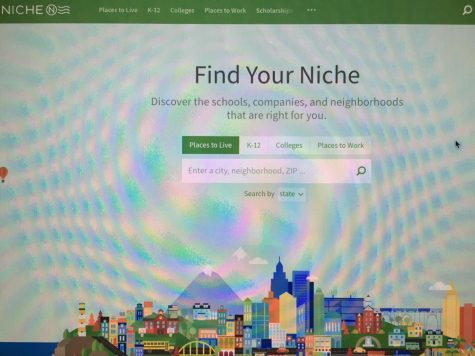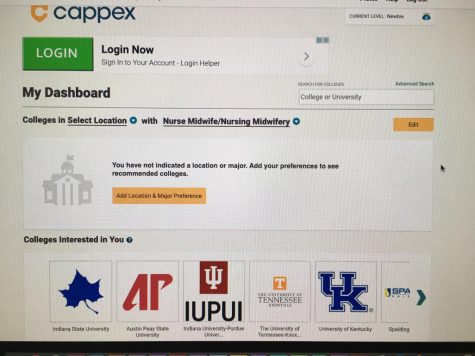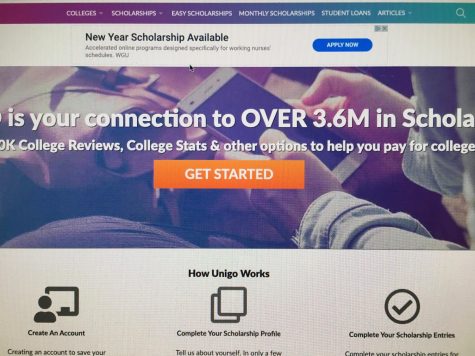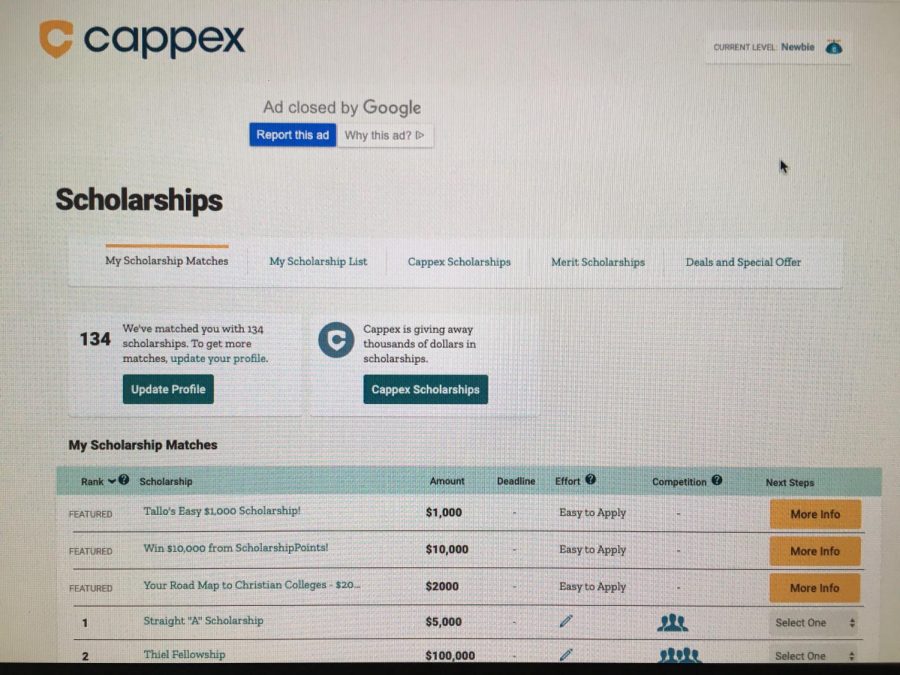Taking the next step: online resources for college readiness
Online platforms can help high school students begin researching scholarships and colleges in a low stress, low pressure way.
Scholarship finder page of the online scholarship and college finder, Cappex.
January 28, 2020
For many high schools, starting junior year students are expected to start building themselves a profile, applying for scholarships and going on college visits. Some students start as early as freshman year in this process. Between college tuition and student loan numbers in the news, most students shake in their boots at the mere thought of life after high school.
College in itself isn’t for everyone — thousands of people find success without it. However, for others, college is a crucial step in their career path. Wherever a student is or plans to be, the Internet has allowed beneficial research purposes from scholarship material to low-stress ways of beginning the college feel.
Niche.com is a free website that generates an array of scholarships based on the profile a student makes and allows them to surf the many colleges and universities it has data on. The search can be narrowed to specific college types, sizes and regions and gives rows of reviews from attending students on the pros and cons. Upon signing up you are immediately enrolled for a chance to win a scholarship worth $2,000. Niche is beneficial to students not knowing where to start and allows them to compile their own college or scholarship list. This website will send emails regarding favored colleges and allow students to start investing themselves in their future.

Homepage of the online scholarships and college finder website, Niche.
Cappex works similar to Niche. Students create a profile and fill it detailed to their own personal lives, achievements and aspirations. Capex starts by suggesting colleges/universities to the student and provides a wide array of scholarships. These scholarships range from no essay to creating multimedia pieces and range from $500 to $10,000 or more. By signing up for the website, students are also enrolled in a chance to win a $1,000 scholarship from Cappex. When students add favored colleges to their list they may be contacted and given further information on the institution for visiting and applying. This is a low-pressure way for students to start getting a feel of what colleges they may be interested in.

Main page of the online scholarship and college finder, Cappex.
Unigo is an organization focused on assisting students in their college search. It works similar to the websites listed above — students create a detailed profile in order to be matched to scholarships and college best suited to their tastes. In addition, Unigo has multiple of their own scholarships, many of which are less than 250-word essays based on interesting and innovative questions. Users can also write a review of their school for a chance to win $1,000. Unlike the other two websites, Unigo has a student loan, job and internship finder and doesn’t send you emails.

Home page of the scholarship, college, student loan, intern and job finder Unigo.
The Scholarship sweepstakes listed above, while slim in winning chances, is legitimate. The majority of scholarships require an essay or set standard. Students should take the time to complete and apply to a variety of scholarships in order to increase their chances.
Students need to be careful with applying to some of these online scholarships and be wary of any scams. If the website ever asks for a social security number or a bank account/debit/credit card number, don’t sign up for it. Unless it is a 100% verified source or legitimately known scholarship, students should refrain from paying any fees or sending money. Scholarship scams are real and do take advantage of unsuspecting students, either by ripping them off or selling their information to third parties. Check out https://thescholarshipsystem.com/blog-for-students-families/the-ultimate-guide-to-scholarship-scams/ for more information on how to spot scholarship scams.









